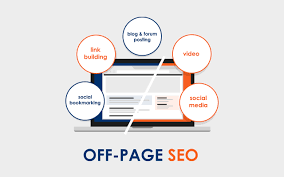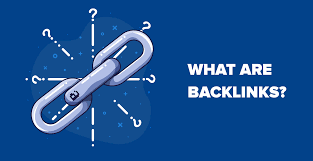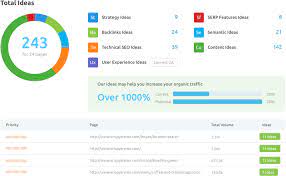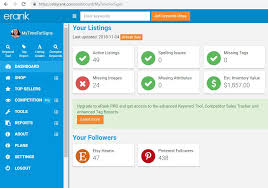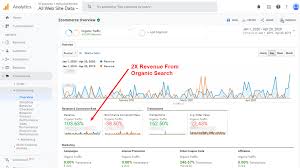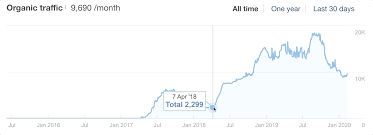Optimising Your Website with Page SEO Strategies
The Importance of On-Page SEO for Your Website
Search Engine Optimization (SEO) is crucial for ensuring that your website ranks well in search engine results. While off-page SEO factors like backlinks are important, on-page SEO plays a significant role in determining your website’s visibility and relevance to search engines.
What is On-Page SEO?
On-page SEO refers to the optimization of individual web pages to improve their search engine rankings and drive organic traffic. It involves optimizing various elements on a webpage to make it more user-friendly and relevant to both users and search engines.
Key Elements of On-Page SEO
Some key elements of on-page SEO include:
- Title Tags: Creating unique and descriptive title tags for each page.
- Meta Descriptions: Writing compelling meta descriptions that accurately describe the page’s content.
- Heading Tags: Properly structuring headings using H1, H2, H3 tags for better readability and keyword optimization.
- Keyword Optimization: Strategically placing relevant keywords throughout the content without keyword stuffing.
- Quality Content: Publishing high-quality, relevant, and engaging content that provides value to users.
- Image Optimization: Optimizing images with descriptive filenames and alt text for better accessibility and search engine visibility.
- User Experience (UX): Ensuring a positive user experience through fast loading times, mobile responsiveness, and easy navigation.
- Internal Linking: Linking to other relevant pages within your website to improve navigation and distribute link equity.
The Benefits of On-Page SEO
Effective on-page SEO can bring several benefits to your website, including:
- Improved Search Engine Rankings: Optimizing on-page elements can help search engines understand your content better, leading to higher rankings for relevant keywords.
- Increase Organic Traffic: By making your website more visible in search results, you can attract more organic traffic from users searching for related topics or products/services.
- <
strong>Better User Experience:
li>
ul>
p>
body>
html>>
9 Essential Tips for Optimising Page SEO
- Use relevant keywords in the title tag.
- Ensure meta descriptions are engaging and informative.
- Optimise URL structure with keywords.
- Include alt text for images to improve accessibility and SEO.
- Utilise header tags (H1, H2, H3) to organise content.
- Create high-quality, original content that provides value.
- Ensure the website is mobile-friendly and responsive.
- Improve page load speed by optimising images and using caching techniques.
- Incorporate internal linking to enhance navigation and SEO.
Use relevant keywords in the title tag.
Utilising relevant keywords in the title tag is a fundamental aspect of on-page SEO. By incorporating targeted keywords into the title tag, you can effectively signal to search engines what your webpage is about, thus improving its visibility and ranking potential. Crafting a concise and descriptive title that includes relevant keywords not only helps search engines understand the content of your page but also entices users to click through to your site. This strategic use of keywords in the title tag can significantly impact your website’s overall SEO performance and enhance its chances of attracting organic traffic from interested users.
Ensure meta descriptions are engaging and informative.
Ensuring that your meta descriptions are engaging and informative is a crucial aspect of on-page SEO. A well-crafted meta description not only provides a concise summary of the webpage’s content but also entices users to click through to your site. By incorporating relevant keywords and highlighting the value proposition of the page, you can improve click-through rates and attract qualified traffic to your website. Remember, a compelling meta description can make a significant difference in how your page performs in search engine results pages.
Optimise URL structure with keywords.
Optimising your URL structure with relevant keywords is a crucial aspect of on-page SEO. By incorporating targeted keywords into your URLs, you not only make it easier for search engines to understand the content of your page but also improve the chances of ranking higher for those keywords. A well-optimised URL structure not only enhances the overall user experience but also signals to search engines the relevance and context of your webpage, ultimately boosting your website’s visibility and organic traffic.
Include alt text for images to improve accessibility and SEO.
Including alt text for images is a crucial aspect of on-page SEO as it not only enhances the accessibility of your website for visually impaired users but also contributes to better search engine optimization. Alt text provides a textual description of an image, allowing search engines to understand the content of the image and index it appropriately. By incorporating descriptive and relevant alt text for images, you can improve your website’s overall accessibility and increase the chances of your images appearing in search engine results, thereby boosting your SEO efforts.
Utilise header tags (H1, H2, H3) to organise content.
Utilising header tags such as H1, H2, and H3 is a fundamental aspect of on-page SEO that helps to organise content effectively. By structuring your content with appropriate header tags, you not only make it easier for users to navigate and understand the information on your webpage but also signal to search engines the hierarchy and importance of different sections. This practice not only enhances readability but also contributes to better keyword optimisation and overall search engine visibility, ultimately improving the user experience and SEO performance of your website.
Create high-quality, original content that provides value.
Creating high-quality, original content that offers real value to your audience is a fundamental tip for effective on-page SEO. Search engines prioritise content that is informative, engaging, and relevant to users’ search queries. By crafting unique and valuable content, you not only enhance your website’s credibility and authority but also increase the likelihood of ranking higher in search results. Providing valuable content not only attracts more organic traffic but also encourages user engagement and establishes trust with your audience, ultimately contributing to the success of your SEO efforts.
Ensure the website is mobile-friendly and responsive.
Ensuring that your website is mobile-friendly and responsive is a crucial aspect of on-page SEO. With the increasing number of users accessing websites on mobile devices, having a site that adapts seamlessly to different screen sizes not only improves user experience but also positively impacts search engine rankings. A mobile-friendly and responsive website enhances accessibility, reduces bounce rates, and ultimately contributes to higher organic traffic and better visibility in search results. It is essential to prioritise mobile responsiveness to cater to the evolving needs of online users and stay competitive in the digital landscape.
Improve page load speed by optimising images and using caching techniques.
To enhance your website’s performance and boost its search engine ranking, focus on improving page load speed through image optimization and caching techniques. By compressing images without compromising quality and implementing caching strategies, you can significantly reduce loading times, providing visitors with a seamless browsing experience. Optimized images and efficient caching not only enhance user satisfaction but also signal search engines that your site is well-structured and user-friendly, ultimately improving its visibility and accessibility online.
Incorporate internal linking to enhance navigation and SEO.
Incorporating internal linking within your website is a valuable on-page SEO strategy that not only enhances navigation for users but also boosts your site’s search engine optimisation efforts. By strategically linking relevant pages within your website, you not only make it easier for visitors to explore related content but also help search engines understand the structure and hierarchy of your site. This can lead to improved indexation, better distribution of link equity, and ultimately higher rankings in search results. Internal linking is a simple yet effective technique that can have a significant impact on both user experience and SEO performance.
